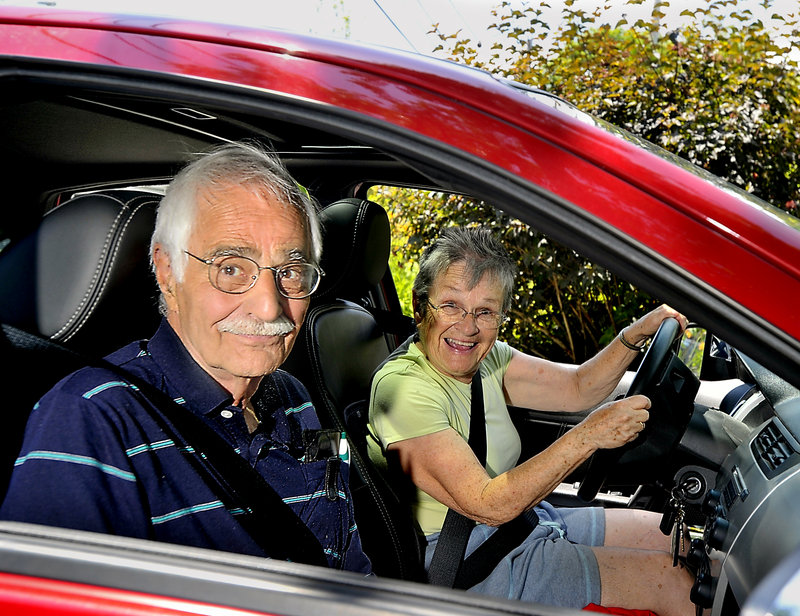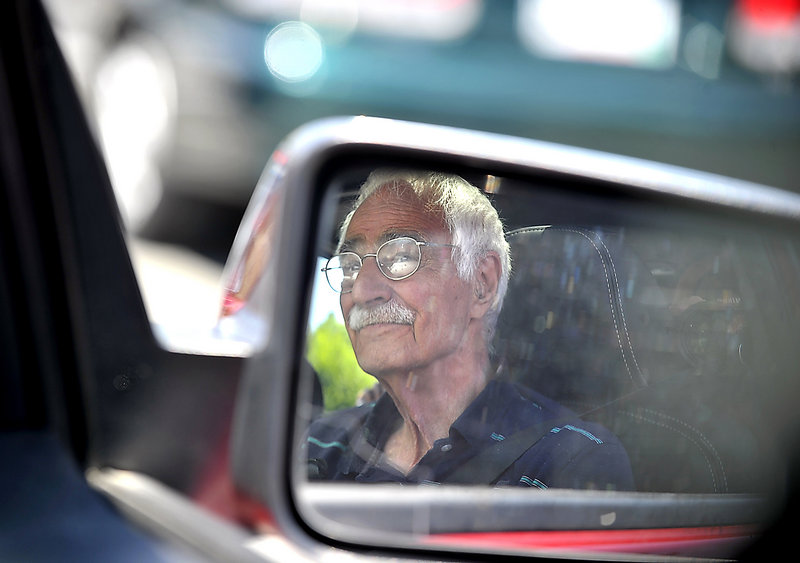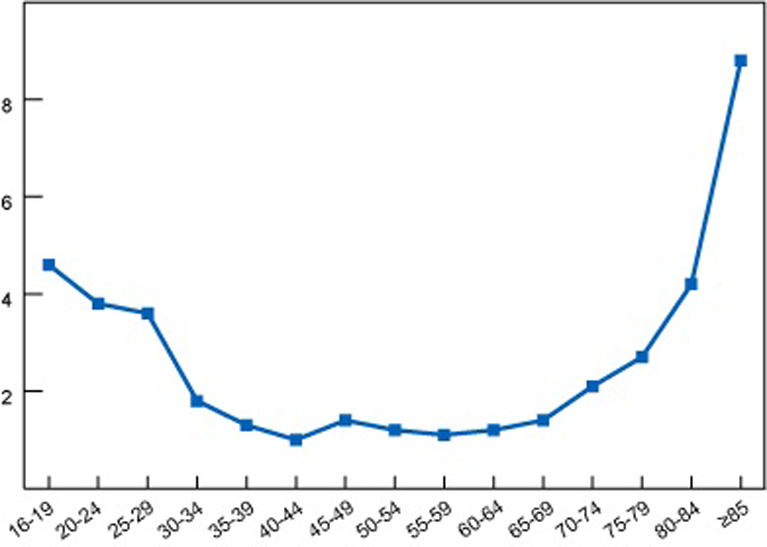Jack Berman may not always know what he had for breakfast yesterday, but he knows he shouldn’t get behind the wheel.
“I could kill someone,” the 84-year-old said.
Berman is a Korean War veteran and one-time traffic engineer who helped install Portland’s first traffic lights. A few years ago, he was diagnosed with Alzheimer’s and had to give up driving. It was his doctor’s decision, not his, but Berman recognizes that it was the right thing to do.
“I know the danger of not having that reaction time; I just don’t have the same control,” he said.
Not everyone accepts losing their ability to drive as easily as Berman did.
Older drivers — a group that is growing at an increasing rate — are cause for concern both for public safety officials and adult children who cringe every time mom or dad climbs into the Oldsmobile to go to the grocery store.
National statistics have shown that drivers in their 70s and older are involved in more fatal crashes per miles driven than almost any other age group, rivaled only by teenage drivers.
When they do get into an accident, it tends to be more severe. The fatality rate for those ages 65 and older is nearly double the rate for drivers aged 16-24, according to the Secretary of State’s Office.
Within a week late last month, there were three bizarre accidents in Greater Portland involving older drivers:
• An 83-year-old man pulled an illegal U-turn into the path of a motorcycle, whose driver was killed.
• An 88-year-old man drove the wrong way on Interstate 295 before colliding with a state police cruiser.
• A 77-year-old man drove through the entrance of a supermarket.
Despite what the statistics tell us, getting older drivers to give up their licenses is no small task. It doesn’t just represent a loss of independence, it’s a big step toward acknowledging mortality.
Ann O’Sullivan runs the family caregiver support program at Southern Maine Area Agency on Aging. She often counsels families on when and how to have the conversation with a loved one whose driving days are nearing an end.
But she cautioned against the assumption that all older drivers are bad drivers.
“Some have some of the best driving records out there,” she said.
Lynwood Schlehuber, 86, lives at Park Danforth, a senior housing complex in Portland, and still drives regularly. Lately, he’s been driving about three miles each day to visit his wife at the Barron Center, where she is undergoing post-surgery rehabilitation. He drives a 1998 Lincoln Town Car, maroon, with veterans plates. He served in World War II.
“I think I get around pretty well,” he said over a cup of coffee recently.
Many resources are available to keep driving skills sharp. Rayette Hudon teaches a course locally for older drivers known as Keeping the Keys. It’s sponsored by AAA.
“Our goal is to keep drivers on the road as long as they are safe,” she said. “Sometimes, though, it’s understanding when they have to stop.”
Schlehuber has five grown children and more grandchildren than he can remember at the moment. None has encouraged him to give up driving.
“Not yet anyway,” he said.
What would he do if that happened?
“What could I do?” he replied.
DIMINISHED DRIVING SKILLS
When people age, their driving skills are affected in several ways. Their reaction time slows down. Their peripheral vision diminishes. Hearing loss sets in. Those changes don’t automatically equate to poor driving, but any one of them can affect driving skills, and they add up.
O’Sullivan said the best thing someone can do if they are worried about an elderly loved one’s driving habits is to take a ride with them.
“Or follow them, if that’s a more comfortable option,” she said. “Get a sense of how they are doing and what their limitations might be.”
When the time comes to intervene, a do-not-drive directive is best coming from a doctor.
“Let the doctor be the bad guy,” O’Sullivan said.
That’s what happened to Berman. His doctor told him it was time and that was that.
Unfortunately, doctors don’t advise patients to stop driving as often as they should, O’Sullivan said. Instead, family members are forced to initiate that awkward conversation and “that can really create a lot of conflict,” she said.
Those conversations are likely to become more prevalent, especially in Maine, whose population is the oldest in the nation. In 2011, about 15 percent of Maine’s population was over age 65. By 2030, that number is projected to jump to 26 percent, according to U.S. Census projections.
Taking away a license or vehicle doesn’t always alleviate problems, though. Sometimes, it creates additional hassles for adult children, who then could be constantly shuttling around their parents as well as their own children.
“It’s really important to consider, what are the alternatives?” O’Sullivan said. “We can’t just say, ‘Don’t drive anymore,’ and have people not have a way to get their groceries.”
In a mostly rural state like Maine, a lack of public transportation options keeps some driving longer than they might if a bus or subway were accessible.
But there are alternatives, mostly limited to more densely populated areas.
Local elder service agencies offer shuttle services to doctors’ appointments and shopping centers. Public bus services may offer discounts to seniors.
NETWORK PROVIDES RIDES
Berman has his ride needs met through the Independent Transportation Network, a ride-share service founded in Maine 17 years ago that now serves as a model for similar programs in 20 other states.
On a recent weekday, David Chute — “Uncle Dave” as he’s known — picked up Berman at his home in the Willard Beach neighborhood of South Portland. Chute helped Berman into his SUV and stowed the man’s walker in the back. Berman’s wife, Marcia, waved as they drove away.
The two men rode to the Barron Center on Brighton Avenue, where Berman spends three days a week playing cards and doing puzzles with other Alzheimer’s patients.
On the way, Berman talked about the Korean War, about his wife and, eventually, about ITN.
“I’ve got all these people who come pick me up; I never know who it’s going to be,” he said. “They are all wonderful.”
Berman is one of about 650 members who live within a 15-mile radius around Portland. Nine paid drivers working part-time and nearly 50 volunteers who work less frequently make ITN possible.
The premise is simple: Members sign up for $40 per year. When they need a ride, they call to make arrangements. Someone comes to pick them up at their home, takes them to the grocery store, or a doctor’s office, or the hair salon, and then returns them home. Members are charged additionally based on how often they use the service, sort of like the Maine Turnpike’s E-ZPass system.
Uncle Dave is one of those volunteer drivers. He retired three years ago and expected to spend his days playing golf, but bad feet left him with extra time on his hands. Now, he drives.
ITN Executive Director Bob Dunfey said he loses about 8 percent of members every year, most of whom have died.
His job is outreach and he works with many elder service agencies in the area.
“It’s a pretty easy sell,” he said. “Our members are thrilled with our service.”
Katherine Freund founded ITN in 1995, not long after her 3-year-old son was seriously injured after being hit by a car driven by an 84-year-old man, the same age as Berman. She wasn’t angry at the driver, she was angry that a transportation system was not meeting the needs of older drivers.
Freund’s son recovered and she created ITN as a “dignified program to help transition people from the driver’s seat to the passenger’s seat.”
Transition is a more palatable word than “cease” or “terminate.” O’Sullivan said older drivers often can adapt instead of getting off the road altogether. Maybe they only drive in the daytime. Maybe they avoid rush hour. Maybe they use ITN sometimes and drive other times.
Berman, for instance, doesn’t always use ITN. His wife still drives. Sometimes, an ITN ride will take him to the Barron Center and his wife will pick him up.
Does he miss getting behind the wheel?
“Oh, I don’t know,” he said.
After he dropped Berman off, Uncle Dave leaned in and said everyone who used to drive misses it when it’s taken away.
But, he said, “this is better for everyone.”
Staff Writer Eric Russell can be contacted at 791-6344 or at:
erussell@mainetoday.com
Twitter: @PPHEricRussell
Copy the Story Link
Send questions/comments to the editors.






Success. Please wait for the page to reload. If the page does not reload within 5 seconds, please refresh the page.
Enter your email and password to access comments.
Hi, to comment on stories you must . This profile is in addition to your subscription and website login.
Already have a commenting profile? .
Invalid username/password.
Please check your email to confirm and complete your registration.
Only subscribers are eligible to post comments. Please subscribe or login first for digital access. Here’s why.
Use the form below to reset your password. When you've submitted your account email, we will send an email with a reset code.